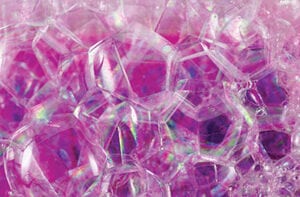The Importance of Defoamers in Industrial Processes and Applications
The Importance of Defoamers in Industrial Processes and Applications
Blog Article
The Role of Defoamers in Enhancing Product Top Quality and Efficiency
In different making processes, the visibility of foam can considerably hinder item top quality and functional efficiency. Defoamers function as crucial additives that reduce this problem, making sure smoother production workflows while boosting the visual and practical characteristics of the final products (defoamers). Their application extends a plethora of industries, from food and drink to pharmaceuticals, where consistency and reliability are critical. However, the option of the appropriate defoamer can be important to achieving ideal outcomes, raising crucial concerns regarding formulation compatibility and efficiency metrics that warrant more exploration.
Recognizing Defoamers
Comprehending the role of defoamers is necessary for keeping product quality across different industries. Defoamers are chemical additives made to protect against the formation and decrease of foam in fluid systems, which can adversely affect procedures such as mixing, loading, and surface area stress. Frothing can cause inefficiencies, product defects, and compromised aesthetic allure, making defoamers a vital element in making operations.
In industrial applications, defoamers help to boost product consistency and stability. In the paint and coatings market, foam can interfere with the application process and the final coating. In food and beverage production, excessive foam can impede bottling and packaging performance. The effective usage of defoamers not only ensures smoother manufacturing processes yet likewise contributes to exceptional product performance.
Furthermore, the choice and formula of a defoamer have to align with certain application requirements, such as compatibility with various other ingredients, effectiveness under varying temperature and pH conditions, and possible governing constraints. Ultimately, comprehending defoamers' functions and their importance in different formulas is important for maximizing manufacturing and guaranteeing the highest quality final result.
Kinds Of Defoamers
Defoamers can be categorized into numerous kinds based upon their make-up and device of action. The main kinds include silicone-based, non-silicone organic, and not natural defoamers.
Silicone-based defoamers are among the most efficient, primarily as a result of their capability to spread rapidly on the liquid surface area and interrupt foam formation. Their one-of-a-kind chemical structure enables exceptional security, making them suitable for high-temperature applications and atmospheres with varying pH degrees.
Non-silicone natural defoamers, commonly composed of natural oils or fats, are valued for their biodegradability and lower toxicity. These are commonly used in food and beverage applications where safety and ecological effect are extremely important.
Inorganic defoamers, which consist of compounds like talc or calcium carbonate, act by enhancing the thickness of the fluid, therefore lowering foam stability. They are typically made use of in industrial procedures where compatibility with other materials is not a worry.
Each kind of defoamer has unique advantages and constraints, enabling tailored services depending on the particular frothing problems run into in numerous applications. Comprehending these distinctions is vital for optimizing performance and attaining preferred item top quality.
Applications Across Industries
Countless industries leverage defoamers to enhance product quality and functional efficiency. In the food and beverage industry, defoamers are important in processes such as brewing and dairy products production to stop foam formation, which can result in ineffectiveness and product incongruity. By regulating foam, suppliers can guarantee far better return and a more uniform item.
In the pharmaceutical sector, defoamers play a crucial duty in the formulation of liquid drugs, where too much foam can hinder blending and exact application. Their use aids preserve the honesty of the formulas and facilitates smoother production processes.
The paint and finishings industry additionally depends on defoamers to official website improve the efficiency of products during application. By minimizing foam, these ingredients make certain a smoother finish and enhance the visual qualities of the last item.

Advantages of Using Defoamers
While the application of defoamers varies throughout sectors, their advantages regularly enhance item top quality and procedure performance. One substantial benefit is the reduction of foam formation during making procedures, which can otherwise cause manufacturing hold-ups and incongruities in item top quality. By minimizing foam, defoamers make it possible for a smoother flow of products, facilitating extra reliable operations and lowering the probability of devices breakdowns.
In addition, using defoamers can enhance the appearance and appearance of end products. In industries such as finishings, paints, and food handling, extreme foam can endanger the visual looks and total top quality, while the proper defoamer application ensures an uniform coating and desirable attributes. Moreover, defoamers can add to set content you back savings by reducing waste during production and optimizing the usage of raw materials (defoamers).
Selecting the Right Defoamer
Choosing the appropriate defoamer is vital for maximizing production procedures and making sure product high quality. The option of defoamer influences not only the performance of foam control but additionally the total efficiency qualities of the end product. Aspects to take into consideration include the type of application, the chemistry of the solution, and the environmental conditions under which the item will be made use of.
Different industries may need specific defoamer types, such as silicone-based, organic, or polymeric defoamers. Comprehending the compatibility of the defoamer with the key active ingredients is important to prevent negative reactions that could endanger product honesty. Furthermore, the defoamer's performance in different temperature levels and pH degrees need to be reviewed to make certain regular efficiency.
Examining the defoamer in small applications can supply beneficial insights right into its efficiency and suitability. Factor to consider of governing compliance, particularly in food, pharmaceuticals, and cosmetics, is extremely important in choosing a defoamer. Eventually, a comprehensive evaluation of these variables will certainly cause the option of a defoamer that not just manages foam effectively but also improves the high quality and performance of the end product.
Conclusion

In final thought, defoamers are crucial ingredients that dramatically improve item top quality and efficiency like this across various industries. The critical selection and application of defoamers lead to set you back savings, optimized resource usage, and increased consumer satisfaction.
Frothing can lead to ineffectiveness, product issues, and endangered visual allure, making defoamers a vital component in producing operations.

Report this page